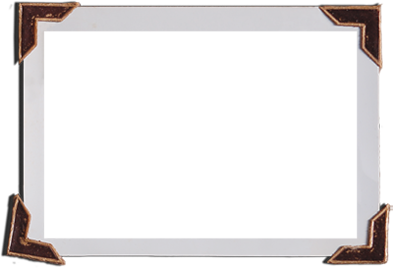Document 13 - “The Hottest Hour”
Letter from Charles to Dorothy, 2 March 1917
Charles wrote to Dorothy shortly after he led the raid into the German trenches.
France
2 March 1917
I wrote to you just before the battle [i.e. trench raid], I hope you get it. Well, it was the hottest hour I have ever experienced.
The Colonel and I selected a point to attack the Germans, then we picked our officers and men and went out for six days training. There was a big raid to follow us and we had to try and get in before and find out information and take prisoners, it was a serious task, everything went well with the training etc and when the minute arrived our artillery opened a barrage which we crawled up to, it was a perfect hell of fire, smoke and shaking earth as soon as the barrage lifted our wire cutters started on the German barb wire, then the mats to cover it were thrown on it and my men dashed into the trench in the face of heavy fire and bombing. Our men killed about 30 Germans, blew up dugouts and got valuable information.
They were to remain in about 20 minutes and then I would send up a blue rocket as a signal to withdraw which I did and burnt the top of my fingers in so doing. It was a real war alright, bursting shells, bombs, killed and dying men, wounded about covered in blood etc., exhausted men collapsing. By jove our stretcher bearers did great work. Zero time was 10:30pm and the artillery ceased at 11:15pm. I was there getting in the wounded till at 12:30am when I thought our raid was disastrous I was greatly surprised when returning to Battalion Headquarters to receive congratulatory messages from Generals, Brigadiers etc. on the success of it as it achieved its objective. I was greatly relieved when I knew all my officers and sergeants had returned untouched.
Lt Mckenzie from Armidale did great work, and will get the Military Cross; he killed 5 Germans, captured 4 and 1 officer. He sent the 4 men back under our men but our boys' blood was up and they chopped the Germans to pieces in No Man's Land. McKenzie would not trust the German officer to his men and started back with him himself as that was a great prize, the German officer was struck by their own shell in No Man's Land and blown to pieces. Lt McKenzie was covered in earth and stunned and a little chap of ours ran back and carried him in, so we did not have any prisoners to present the Brigadier...
The raid was an awful worry to me as I thought my men would be butchered in the German wire but by an act of providence [i.e. God] the German machine gun which was covering the gap [in the barb wire] we entered was smashed by our shells.
The weather is getting milder now and the ice has melted on the water. January [1917] was the coldest month here for about 40 years. I do not know how I endured it some days, it was unendurable.
Source: Australian War Memorial Private Record 2DRL/0174
Ask Yourself
- To what extent did the raid follow plans and achieve its goals?
- How does Linklater's description of Australian soldiers killing prisoners contrast with popular, modern images of the ‘Aussie digger’

